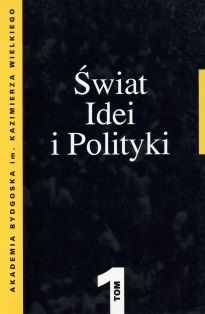Między autonomią jednostki a dobrem publicznym - etyczne dylematy liberalizmu politycznego
DOI:
https://doi.org/10.34767/SIIP.2001.01.02Abstrakt
This article is an attempt to oppose expressing liberalism as a tightly understood ethic particularism. According to the author, loss of moral bases in the present political practice seems to be a result of the improper understanding of what the liberal ethos is and stretching it to an almost every axiology. The structure of the work is based on an interpretation of liberal expressions of an individual’s autonomy and the general weal. In the author’s opinion, the ethical meaning of the development of the emphasized doctrine is the area where the two ideas clash. In his conclusion, the author underlines that also in liberalism we meet a minimal community of values. It results directly from the political nature of this doctrine. On the other hand, a hétéronomie social reality causes that the analyzed ideology does not absolutise one vision of the good as an unchangeable axiom for political effectiveness. Most of the liberal thinkers put forward a postulate of public cocreation of the political consensus which can take a different shape in different time and conditions. In the author’s opinion, the articulated public weal is a kind of the common weal, however, the latter has a distinctly dynamic character in the liberal meaning. The last sentences of the article lead to a postulate of making a liberal doctrine political again. The present creators of the doctrine concentrate too much on economic problems only, whereas the contemporary liberalism should include the fact that a modem political system is based on principles of a social agreement, in which, if possible, private interests ought to be submitted to the common weal.
Pobrania
Opublikowane
Numer
Dział
Licencja
Prawa autorskie (c) 2023 Świat Idei i Polityki

Utwór dostępny jest na licencji Creative Commons Uznanie autorstwa 4.0 Międzynarodowe.

